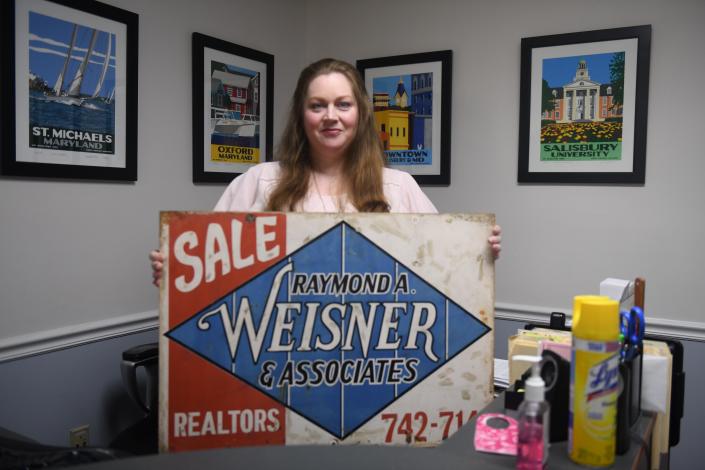Maryland’s housing shortage has a state House committee taking notice as a veteran in Annapolis called on the Legislature to take action. Topics in the discussion included both renovation and renters.
“As a committee and as a Legislature, we need to focus on the No. 1 problem, which is the lack of (housing) supply,” chair of the House Environment and Transportation Committee, Del. Kumar Barve, D-Montgomery, said during the hearing.
The state is more than 120,000 housing units short, according to Freddie Mac and the National Association of Realtors, the report stated. President of Maryland Realtors Yolanda Muckle said that number was up from 82,000 units last year.


Maryland Realtors, a trade association representing 32,000 members, released its annual State of Maryland Housing Report on Tuesday morning at an Annapolis hotel, and Barve’s committee heard five housing-related bills that afternoon in the House office building.
Despite the statewide gap, those in the business of housing are not waiting on state government for a solution.
“It’s more of a local issue,” said Libby Weisner, property manager for Weisner Real Estate, a Salisbury-based company started by her great-grandfather in 1938. The industry veteran also acknowledged Annapolis’ role in reducing the housing gap. “The state of Maryland government can support local communities in their effort to promote housing and development.”
Granny flats increase housing. But by how much?


One way Weisner sees the state being able to help is through legislation creating a task force to study accessory dwelling units, separate residential units in a private home or on a property.
ADUs, also known as granny flats, carriage houses or garage/basement apartments, she said would be “an immediate help to the housing crisis.”
More:Mayors of Salisbury, Hagerstown among Wes Moore’s picks for administration
Local jurisdictions set their own zoning policies and have a plethora of policies regarding this small part of the housing puzzle. For example, Calvert County has allowed for the units since 2006 while neighboring Prince George’s County’s laws make new construction impermissible.
“A lot of these accessory dwelling units already exist,” said Weisner, calling ADUs a “quick fix” and speaking in favor of the study bill, during a phone interview. “Long term, we simply need more housing.”
More:Maryland’s eviction numbers are falling with federal help, but relief’s running out
Lisa May, advocacy and public policy director with Maryland Realtors, testified that ADUs “present an opportunity to get back anywhere between (20,000) to 40,000 units.” With 2 million residential lots statewide, she said a 1% to 2% adoption rate of ADUs would close the housing gap by that much.
Can ADUs find support where it matters?
Her organization’s report said 77 percent of Maryland voters support the idea of an accessory dwelling unit. But the adoption of ADUs, even the task force itself, is not subject to popular opinion alone.
“The Speaker’s office allows us to have one possibly, two task force bills every year,” said Barve, a veteran committee chair who has served in the Legislature since 1991. “You’re competing against all the other task forces,” he told Delegate Jeffrie Long Jr., the bill sponsor.


Long, a freshman legislator and Democrat whose district includes both Calvert and Prince George’s, noted California, Rhode Island, Oregon, Vermont and Minnesota allow for ADUs.
Another freshman Democrat, Washington County’s Brooke Grossman, also sponsored the legislation to study ADUs. The task force would be responsible for submitting a report to the governor and General Assembly on or before Dec. 1, 2024.
The bill’s purpose, said Grossman, “is really truly to understand how each community is managing that process (with ADUs) now, and are there ways to streamline it across the state?”
“This can potentially open up opportunities for families who have loved ones that are aging, to create a space where they can age in place,” said Grossman, during a Feb. 6 phone interview.
Del. Ryan Nawrocki, R-Baltimore County, noted during the hearing that his county’s government is moving an ADU bill along, but that one of the sticking points is how to legislatively address the units with regards to the online rental marketplace like Airbnb.
“Just concerned that people are going to be operating unregistered rental properties, essentially,” he said.
How many people are competing for rentals?
Earlier in the hearing, Martin Mitchell, an at-large Laurel, Maryland, city councilman, testified in support of a bill that would require a landlord to notify a tenant in writing or through email at least 120 days before increasing the tenant’s rent by more than 4%.
Mitchell represents a municipality third highest in the state in terms of percentage of residents who rent. Midway between Baltimore and Washington, D.C., the city has a 56 percent rate of renters. The only cities with higher rates, according to U.S. Census data: Salisbury and Hagerstown.
“The number is between 58% and 62%,” Hagerstown City Administrator Scott Nicewarner wrote in an email. “With the higher number being in the COVID days when folks were tending to stay longer in rentals instead of purchasing homes here.”
More:As Maryland’s school plan begins, ‘childcare deserts’ a persistent problem
Salisbury’s Director of Housing and Community Development Ron Strickler Jr. estimates that the rate of renters for the Eastern Shore city and college town is now in the high 60s after reaching 73%, according to Census data.
For the Realtor whose family has operated in the city since the first part of last century, she’s hoping the housing tide to turns toward more available places.
“I’m looking forward to seeing more housing units come onto the market,” said Weisner, “because there are so many people under pressure right now, who are stressed over their costs or a matter of space.”
Dwight A. Weingarten is an investigative reporter, covering the Maryland State House and state issues. He can be reached at dweingarten@gannett.com or on Twitter at @DwightWeingart2.
This article originally appeared on The Herald-Mail: With housing in short supply statewide, legislature considers ADUs